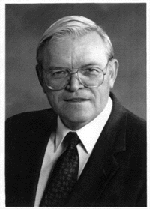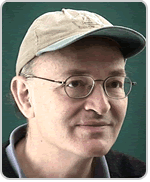Andy Elby is 2012 Graduate Faculty Mentor of the Year
- Details
- Published: Tuesday, April 17 2012 11:33
Andy Elby, a professor in the Department of Teaching Learning, Policy and Leadership and an affiliate in the Physics Education Research Group, has been awarded the 2012 Graduate Faculty Mentor of the Year Award. This award recognizes faculty members who have made exceptional contributions to students' graduate education and experience.
Dr. Elby will be honored at the Graduate School's Fourth Annual Fellowship and Award Celebration, which will take place on Tuesday, May 1, 2012, 3:00-5:00 p.m., in the David C. Driskell Center.

 While a graduate student at University of Maryland, Ravi Kuchimanchi founded the Association for India’s Development (AID), a volunteer movement for sustainable, holistic development with 50 chapters in the United States, UK, Australia and India. It brings highly skilled professionals to work with the poor and underprivileged, promoting a deeper understanding of the causes of poverty. Each year, AID raises more than $1 million in the United States and mobilizes nearly 1,000 volunteers to tackle the corruption and exploitation that keeps many Indian residents living in poverty.
While a graduate student at University of Maryland, Ravi Kuchimanchi founded the Association for India’s Development (AID), a volunteer movement for sustainable, holistic development with 50 chapters in the United States, UK, Australia and India. It brings highly skilled professionals to work with the poor and underprivileged, promoting a deeper understanding of the causes of poverty. Each year, AID raises more than $1 million in the United States and mobilizes nearly 1,000 volunteers to tackle the corruption and exploitation that keeps many Indian residents living in poverty.
